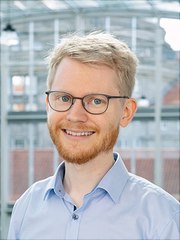This workshop by Dr. Peter Schubert from the University of Hamburg facilitates a conversation of „Social Impact Measurement“ and its implications for memory institutions and non-profit organisations in the cultural sector. Different approaches to conceptualize and assess social impact are discussed which have become important as instruments for cultural institutions to use within their internal governance as well as in external representations to the public and funders. The workshop includes cases in which participants develop and critically reflect on different research designs for measuring impact.
Key questions of the workshop include:
Fundamentals:
- What is social impact?
- What societal and organizational trends explain the increased focus on impact measurement?
- What are the critiques of the trends towards measuring impact?
Modeling social impact:
- What are the different components of an impact model?
- How do we conceptualize social impact along multiple dimensions?
- What are specific dimensions of social impact in cultural institutions?
Social impact measurement:
- What are the typical impact measurement challenges?
- What are quantitative and qualitative approaches and tools for impact assessment?
- What are situations when we should not measure impact?
View and download the bibliography of the workshop here.


